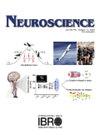远程精神病学:知识、有效性和意愿;对沙特阿拉伯精神病医生的评估
IF 1.2
4区 医学
Q4 CLINICAL NEUROLOGY
引用次数: 2
摘要
目的:评估精神科医生对远程精神病学的知识和认知,并评估他们在沙特阿拉伯采用远程精神病学临床实践的意愿。方法:对2020年11月至2021年5月在沙特阿拉伯工作的精神科医生进行了一项横断面研究。通过分发了一份自填问卷,其中包括社会人口统计数据、与知识、感知、意愿、障碍和远程心理有效性相关的因素。在线平台。数据在MS Excel中制成表格并进行清理,所有统计分析均使用SPSS v26进行。结果:该组共有328名精神科医生,平均年龄为25-35岁(48.8%),主要由沙特人组成(83.5%);总体而言,精神科医生的远程心理知识水平较差(51.8%),而(48.2%)的受访者表现出良好的知识水平。然而,几乎所有受访者都表现出良好的感知能力(80.8%),只有19.2%的人被归类为较差。此外,老年人、顾问、有11-15年经验的临床医生、通过电子邮件与患者互动的临床医生,以及那些经常收到患者关于在线交流的问题的人,都表明知识有所增加。结论:尽管人们对心灵精神病学的认知是积极的,但精神科医生对这一主题的了解被认为是不够的。精神病学家的知识取决于他们的年龄、职位、多年的经验、通过在线平台与患者的频繁互动,以及提供他们在线联系方式的客户。本文章由计算机程序翻译,如有差异,请以英文原文为准。
Telepsychiatry: knowledge, effectiveness, and willingness; assessments of psychiatrists in Saudi Arabia
Objectives: To assess psychiatrists’ knowledge and perception regarding telepsychiatry and evaluate their willingness to adopt telepsychiatry clinical practice in Saudi Arabia. Methods: A cross-sectional study was conducted among psychiatrists working in Saudi Arabia from November 2020 through May 2021. A self-administered questionnaire comprising socio-demographic data, factors related to knowledge, perception, willingness, barriers, and the effectiveness of telepsychiatry, was distributed via. online platform. Data were tabulated and cleaned in MS Excel, and all statistical analyses were performed using SPSS v26. Results: There were 328 psychiatrists enrolled in the group with an average age of 25–35 years (48.8%). The group comprised mainly Saudis (83.5%); male participants outnumbered females (70.4% to 29.6%). Overall, the psychiatrists’ telepsychiatry knowledge level was poor (51.8%), while (48.2%) of the respondents showed good knowledge. However, nearly all respondents exhibited good perception (80.8%), with only 19.2% classified as poor. In addition, older individuals, consultants, clinicians with 11–15 years of experience, clinicians interacting with patients via email, and those who frequently received patient questions regarding online communication indicated increased knowledge. Conclusion: Although perception was positive regarding telepsychiatry, psychiatrists’ knowledge on the subject was deemed insufficient. Psychiatrists’ knowledge depended on their age, position, years of experience, frequent interaction with patients through an online platform, and clients that provided their online contact details.
求助全文
通过发布文献求助,成功后即可免费获取论文全文。
去求助
来源期刊

Neurosciences
医学-临床神经学
CiteScore
1.40
自引率
0.00%
发文量
54
审稿时长
4.5 months
期刊介绍:
Neurosciences is an open access, peer-reviewed, quarterly publication. Authors are invited to submit for publication articles reporting original work related to the nervous system, e.g., neurology, neurophysiology, neuroradiology, neurosurgery, neurorehabilitation, neurooncology, neuropsychiatry, and neurogenetics, etc. Basic research withclear clinical implications will also be considered. Review articles of current interest and high standard are welcomed for consideration. Prospective workshould not be backdated. There are also sections for Case Reports, Brief Communication, Correspondence, and medical news items. To promote continuous education, training, and learning, we include Clinical Images and MCQ’s. Highlights of international and regional meetings of interest, and specialized supplements will also be considered. All submissions must conform to the Uniform Requirements.
 求助内容:
求助内容: 应助结果提醒方式:
应助结果提醒方式:


